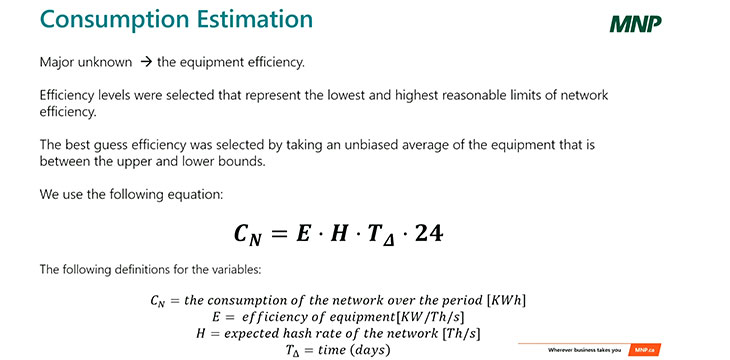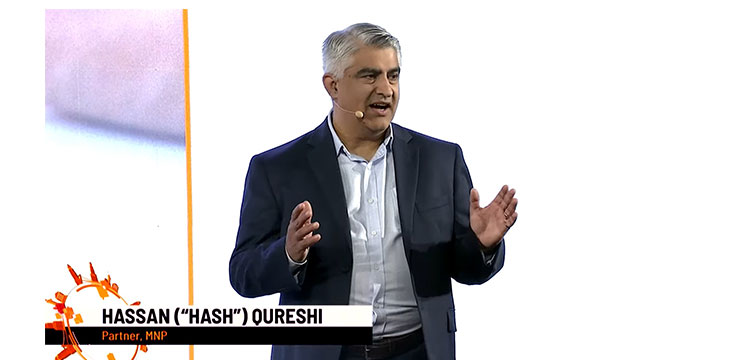BSV beats BTC on energy efficiency, says MNP at CoinGeek New York

On the slim chance you hadn’t heard of MNP, one of Canada’s largest assurance, risk and audit firms, you almost certainly heard of their recent report comparing BSV with BTC to see which best matches the vision set out in the Satoshi Nakamoto whitepaper.
Hassah Qureshi, partner at MNP, and Joseph MacCallum, senior consultant for Enterprise Risk Services of MNP, present one component of their research in a presentation titled, “A Study of Bitcoin & Blockchain Energy Consumption” on the second day of the CoinGeek Conference in New York.
The subject has become an increasingly large part of the digital asset conversation over the past year or so, with many coming around to the realization that there’s a cost associated with Bitcoin.
MNP’s report identified their different use of energy as a key differentiator: BTC’s overall energy consumption per transaction increases with difficulty as block sizes are limited to 1MB. On the BSV network, the amount of energy used per transaction declines significantly as the block sizes increase and more transactions get processed per block.
The two summarized the research that went into their report, which brought home just what an undertaking the project was. It involved canvassing a huge number of companies, projects, market dynamics and prior research. But as the focus of the presentation was on energy consumption, Qureshi made one point:
“BSV is significantly much more energy efficient.”
Then, they started into the technical details of their report. “Our key efficiency criteria for the comparison is the average energy consumption per block, per transactions, and per megabyte validated,” they said.


“BTC consumes a significant more amount of energy than the other two protocols… we’re talking about orders of magnitude huge here,” MacCallum revealed.


MacCallum also said that Bitcoin is increasing in consumption over time in terms of watt-hours per megabyte and transaction. However, looking at BSV, there’s a completely different story. As BSV goes through time, its consumption is trending downward.
“It’s a story about throughput, and it’s a story about block size. BSV averages more transactions, and so it’s going to be more energy efficient.” MacCallum added that “BSV is much more energy efficient per transaction. And the reason for this is the uncapped limit on block size.”
The final report will be released in its entirety in the coming months following MNP’s final validation process, but you can read the current version here.
Watch CoinGeek New York 2021 Day 2 here:
Source: Read Full Article

